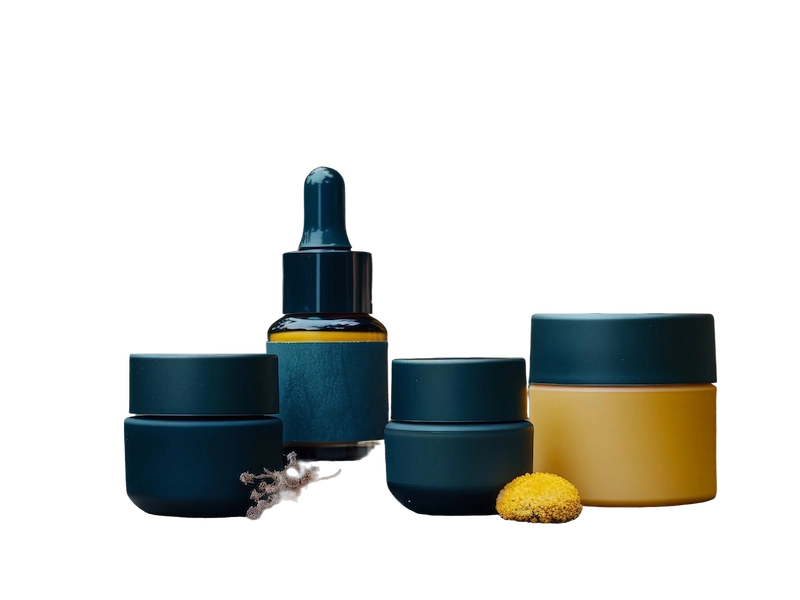Halal Certification for Private Label Brands
The private label and contract manufacturing industry is experiencing unprecedented growth, with the global halal market reaching $2.3 trillion. For contract manufacturers halal certification

Halal Certification for Contract Manufacturers: Your Competitive Edge
The halal-certified manufacturing industry is booming. With the global halal market exceeding $2.3 trillion, more brands are searching for halal-certified contract manufacturers to meet the growing demand of over 2 billion Muslim consumers worldwide.
Whether you’re a private label manufacturer or offer contract services, providing your USA brands with halal certification isn’t just about compliance; it’s a smart business move. It opens up new markets in muslim communities, builds trust with premium clients, and sets you apart from competitors.
Why Choose Halal Certification?
The halal consumer market is rapidly expanding, fueling demand for certified facilities across food, cosmetics, nutraceuticals, and pharmaceuticals. Early investment means staying ahead of the curve, commanding market attention, and securing bigger profits.
The Prophet (ﷺ) emphasized the importance of lawful consumption: “A time will come upon the people wherein a man will not bother what he intakes; whether from a halal source or haram.” (Bukhari 2059)
Halal personal branding turns your facility from a basic service provider into a strategic partner for major Muslim brands. When you’re certified, brands can:
- Start production immediately without investing in separate halal audits.
- Save thousands of dollars on facility certification and consultant fees.
- Avoid delays in launching products to halal markets.
- Reduce risks of contamination or non-compliance.
- Trust your team’s expertise in navigating complex halal requirements.
How It Works: The Certification Process
Becoming halal certified involves a few key steps:
- Facility Assessment
We review your equipment, ingredient sources, staff protocols, and cleanliness standards.
- Document Review
You submit proof of sourcing, sanitation practices, and quality control records.
- On-Site Audit
Our inspectors verify that your production lines, storage areas, and processes meet halal standards. - Certification & Ongoing Support
Once approved, we issue a halal certificate, provide marketing materials, and offer yearly support for audits and renewals.
What Sets Halal-Certified Manufacturers Apart?
When brands look for partners, your halal-certified facility offers them:
- Faster time-to-market
- Lower costs and fewer risks
- Confidence in your systems and protocols
- Access to premium export markets like the Middle East, Southeast Asia, and Europe
As a certified manufacturer, you’ll also benefit from:
- Higher service fees (15–25% more)
- More long-term partnerships
- Better client retention
- Wider global reach
Key Requirements for Halal Manufacturing
To become halal certified, you must meet essential standards:
- No pork, alcohol, or blood-based ingredients
- Use halal-certified animal-derived materials only
- Keep halal and non-halal items fully separated
- Clean equipment thoroughly between production runs
- Source ingredients from verified halal suppliers
Cleanliness and transparency are core values. As the Prophet Muhammad ﷺ said, “Cleanliness is half of faith.” Your facility should reflect that standard in every area: storage, processing, and packaging.
Special Considerations for U.S. Manufacturers
U.S. facilities often use ingredients from mixed or unclear sources. That’s why halal certification involves detailed supply chain checks to confirm:
- Slaughter methods follow Islamic law. Only Muslims or Ahlul Kitab (People of the Book – Jews and Christians) may perform halal slaughter.
- Alcohol use is limited to non-intoxicating types (e.g., fatty or synthetic alcohols)
- All products and processes follow Islamic purity (taharah) principles.
The Prophet (ﷺ) said: “Eat (what is slaughtered) with whatever makes blood flow out, except what is slaughtered with a tooth or a nail.” (Sahih al-Bukhari 5506)
Industries Benefiting from Halal Certification
Private label halal certification is growing across sectors:
- Food & Beverages: The most significant and fastest-growing segment
- Cosmetics & Personal Care: High consumer demand for halal skincare and makeup
- Pharmaceuticals & Nutraceuticals: Specialized markets needing certified processing
The Investment and ROI
Initial costs include:
- Certification: $5,000–$25,000
- Facility upgrades: $10,000–$50,000
- Staff training and systems: $5,000–$10,000
But the returns are strong:
- 15–25% premium pricing
- 30–40% increase in contracts
- Long-term clients and international market access
- Stronger reputation and higher bid win rates
Final Thoughts
Getting your manufacturing facility halal certified is more than a trend; it’s a new and evolving strategy. It positions your brand as a reliable partner for companies looking to serve the global Muslim market.
By becoming halal certified, you gain trust, open doors to new opportunities, and increase your revenue potential while helping your clients expand globally with confidence.
industries we serve
Is Your Product Ready for Halal Certification?
Get a Free Expert Evaluation Today
Discover if your ingredients, processes, and facilities align with Islamic dietary laws.
Start your Free Halal Compliance Check now — no obligation!

Certification Process
The halal certification in Private Label Brands can be done through the following process:

Make Contact
Contact us to begin halal certification for your private label brand.

accept proposal
Review and approve the customized certification plan we provide.

down payment
Secure the process by submitting your initial payment.

Submit docs
Share formulations, product details, and supporting documentation.

audit
Our team audits production to confirm compliance with halal standards.

halal certify
Receive your official halal certificate for your private label products.
FAQs
What makes a manufacturing facility halal-certified?
Can we maintain both halal and conventional production in the same facility?
What happens if a brand partner wants to use non-halal ingredients?
Testimonials
Posted onTrustindex verifies that the original source of the review is Google. I love it! It’s so helpful and easy to keep track of things we are consuming and making sure everything is halal for us Muslim brother and sisters!Posted onTrustindex verifies that the original source of the review is Google. Great and professional organization! Very respectful responsive and really do their thoroughly. We been dealing with them for few years and it has been a great experiencePosted onTrustindex verifies that the original source of the review is Google. Great customer services!!Posted onTrustindex verifies that the original source of the review is Google. What stands out most about Halal Watch World is its unwavering commitment to integrity and excellence. I’ve seen firsthand how dedicated the company is to providing clients with the best service and ensuring they meet the highest halal standards. If you’re looking for a reliable and trustworthy partner for your halal certification needs, Halal Watch World is the clear choice. It’s a company that truly values quality, professionalism, and making a positive impact in the industry.Posted onTrustindex verifies that the original source of the review is Google. A compassionate , conscientious company. Constantly striving to meet the needs of the community. We highly recommend them.
